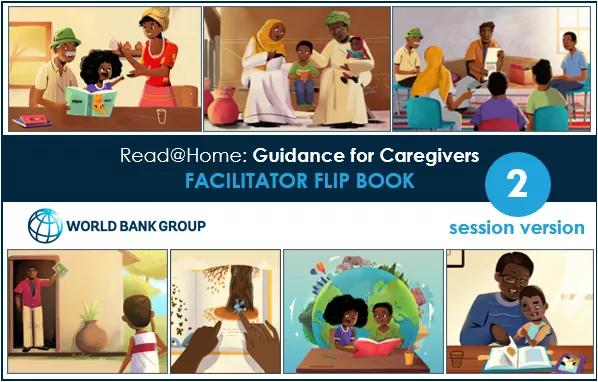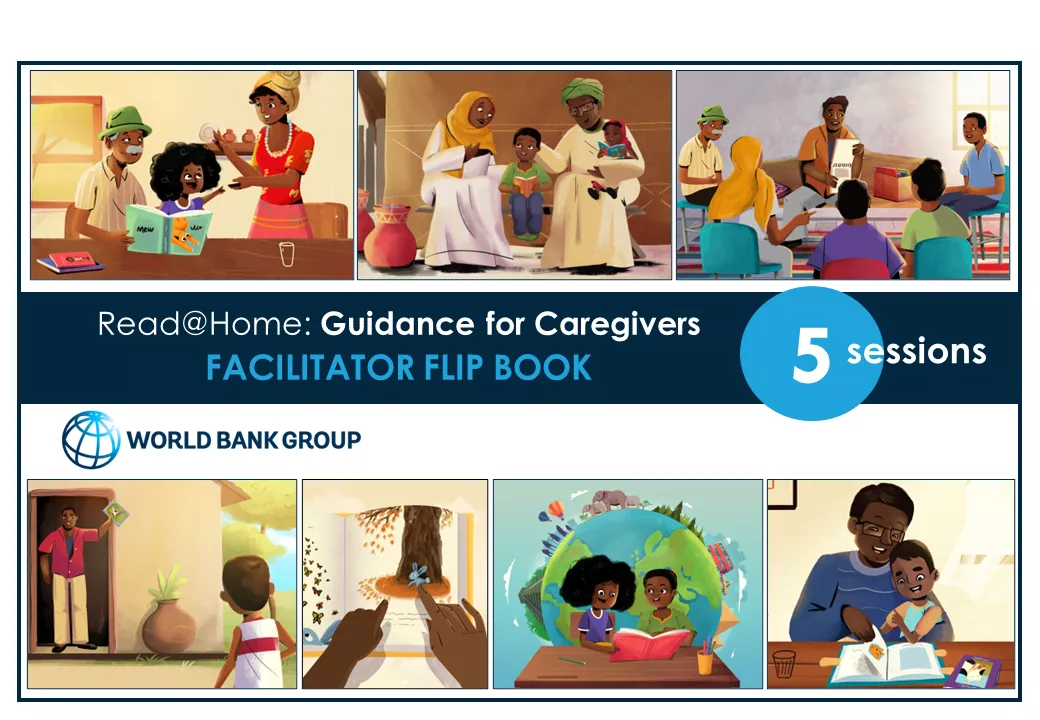The purpose of this study is to explore the status of the creation, use and/or management of open education resources (OER) in Kenya. OER, which to a large extent depend on access to Information Communication Technology (ICT), are seen by proponents as offerring certain opportunities to improve access to and quality of education.
Search the site
The Early Grade Reading Assessment (EGRA) Toolkit is intended for use by Ministry or Department of Education staff, donor staff, practitioners, and professionals in the field of education development. The document, in 12 sections, seeks to summarize a large body of research in an accessible manner.
Quality education should be delivered in the language spoken at home. However, this minimum standard is not met for hundreds of millions, limiting their ability to develop foundations for learning. By one estimate, as much as 40% of the global population does not have access to an education in a language they speak or understand.
National language policy mandates use of the language of the catchment area as the medium of instruction in Grades 1 to 3; in practice, however, English is used extensively as the medium of instruction even in Grade 1 classrooms. The national education agendas are motivated by economic progress and social advantage.
This report assessed school- and community-based reading. The Stanford-led team conducted a randomized control trial of a literacy intervention in Rwanda to determine whether programs aimed at families and communities had an impact on children's reading --above and beyond-- the traditional approach of training teachers.
This study was conducted as part of the OER for Skills Development project of Commonwealth of Learning (COL), supported by The William and Flora Hewlett Foundation. The objective of the study was to collect baseline data from Commonwealth institutions with respect to the development, use and reuse of OER; the availability of support; and challenges faced in fostering the use of OER.
Open Educational Resources (OER) offer a powerful means of expanding the reach and the effectiveness of education worldwide. For this reason, COL and UNESCO co-organised the World OER Congress in 2012 in Paris, which resulted in the OER Paris Declaration: a statement urging governments around the world to release, as OER, all teaching, learning and research materials developed with public funds.
The language environment in the Eastern and Southern Region of Africa is rich and dynamic. Many African languages, including Amharic, Kirundi, Swahili, isiZulu, Kinyarwanda, Chichewa, Luganda, Kikuyu, Malagasy, Oromo, and Somali are spoken as mother tongues by millions of African citizens. Some may also serve as regional and national languages.
The Impact of Open Licensing on the Early Reader Ecosystem examines how to use open licensing to promote quality learning resources for young children that are relevant and interesting.


This flip book is designed to be used over two meetings with caregivers, with content divided into two sessions.


This flip book is designed to be used over three meetings with caregivers, with content divided into five sessions.
This paper was written for the 5th IBBY Africa Regional Meeting, which was held 29 August-1 September 2019 in Accra, Ghana. The conference took as its theme: the importance of illustrations in children’s books.
This paper was written for the 5th IBBY Africa Regional Meeting, which was held 29 August-1 September 2019 in Accra, Ghana. The conference took as its theme: the importance of illustrations in children’s books.
Openly licensed resources are ‘free’ to access, but there are significant creation, adaptation, production, and use costs. The long-term sustainability of local-language publishing requires that these costs be met fairly, using financial models that will enable people to establish, grow, and maintain effective content creation organizations.
This presentation was created for the Association for the Development of Education in Africa (ADEA) workshop in Nairobi on National Book and Reading Policies for Africa from 17th to 19th June 2019. The presentation addresses issues related to the cost of storybook creation and adaptation of storybooks.
This presentation was delivered delivered on 22 May, 2019 at the 3rd African Library & Information Association (AfLIA) Conference and 5th African Library Summit, held at the Weston Hotel in Nairobi, Kenya. The theme of the conference was ‘African libraries creating the Africa we want and achieving the Sustainable Development Goals’.
A key barrier to improving children's reading skills is limited or no access to textbooks and reading materials. An open education resource (OER) policy could help progress Early Grade Reading (EGR) efforts and is now a policy requirement for all United States Government-funded projects. Can stakeholders in the book production chain embrace an OER model, finding benefit in the approach for their businesses?
Restrictive copyrights can limit how likely reading resources are to be used, shared or repurposed, which significantly diminishes the potential impact of the materials. Donors and international organizations are increasingly investing in open educational resources, as they are interested in ensuring that educational materials reach the greatest possible number of learners, and that broad access to those material




